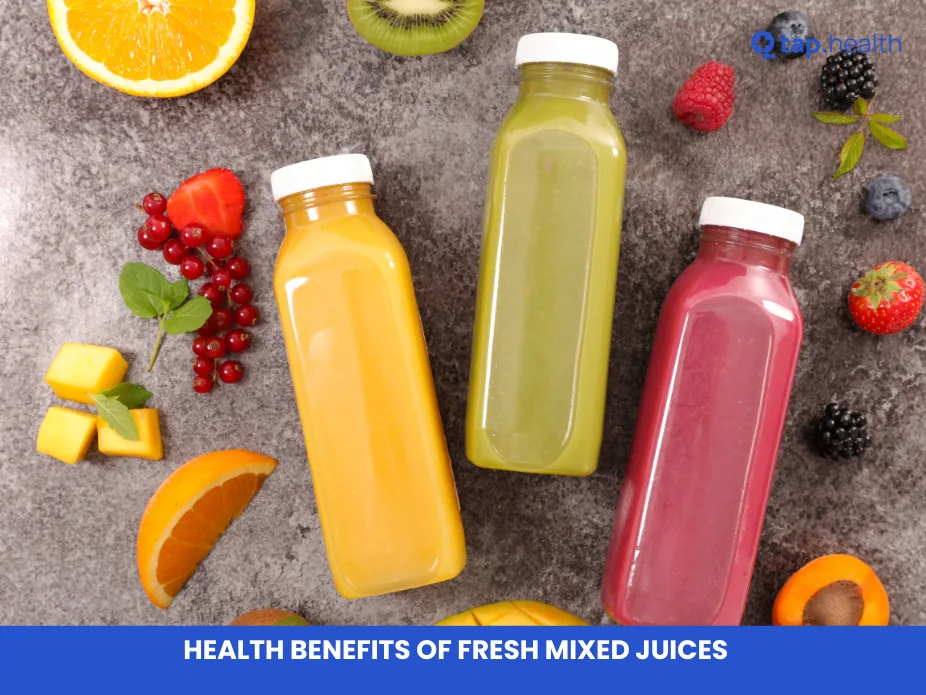Impelling advantages of fresh mixed juices is their exceptional nutrient density. By combining multiple produce items, you amplify the spectrum of essential nutrients your body receives in a single serving. For instance:
- Vitamin C from citrus fruits and bell peppers supports immune function and collagen synthesis.
- Beta-carotene from carrots and sweet potatoes converts to vitamin A, promoting eye health and skin integrity.
- Folate from leafy greens like spinach aids in DNA synthesis and red blood cell formation.
- Potassium from bananas, oranges, and celery helps regulate blood pressure and fluid balance.
- Polyphenols and flavonoids from berries, apples, and pomegranates act as powerful antioxidants that combat oxidative stress.
Because juicing removes insoluble fiber, nutrients are absorbed more rapidly into the bloodstream, offering a quick nutritional boost—ideal for individuals with compromised digestion or those seeking immediate energy and cellular nourishment.
Enhanced Digestion and Gut Health
While juicing eliminates fiber, this can be beneficial in certain contexts. For people with inflammatory bowel conditions (e.g., Crohn’s disease or ulcerative colitis) or recovering from gastrointestinal surgery, low-fiber liquids are easier to digest and less taxing on the gut. Fresh juices allow the digestive system to rest while still delivering vital nutrients.
Moreover, many juice blends incorporate ingredients known to support gut health:
- Ginger stimulates digestive enzymes and reduces nausea.
- Lemon aids liver detoxification and promotes bile flow.
- Cucumber provides hydration and soothes the intestinal lining.
- Aloe vera juice (when used in moderation) can reduce gut inflammation.
It’s important to note that while juices offer short-term digestive relief, long-term health still requires adequate dietary fiber from whole foods to maintain a healthy microbiome and regular bowel function. Thus, fresh juices should complement—not replace—a fiber-rich diet.
Detoxification and Liver Support
The liver is the body’s primary detoxification organ, and fresh mixed juices can enhance its natural cleansing processes. Cruciferous vegetables like kale, broccoli sprouts, and cabbage contain sulfur compounds (e.g., sulforaphane) that activate liver detox enzymes. Beets are rich in betalains, antioxidants that support phase II liver detoxification. Citrus fruits provide limonene, which stimulates glutathione production—a master antioxidant critical for neutralizing toxins.
A popular “detox” juice blend might include:
- Beetroot (liver support)
- Lemon (alkalinizing, vitamin C)
- Ginger (anti-inflammatory)
- Apple (natural sweetness, polyphenols)
- Celery (electrolytes, hydration)
While the term “detox” is often overused in marketing, the science is clear: nutrient-dense plant juices provide the cofactors and antioxidants necessary for the body’s innate detox pathways to function optimally.
Immune System Fortification
A robust immune system relies on a steady supply of micronutrients, many of which are abundant in fresh produce. Vitamin C, found in oranges, kiwis, and bell peppers, enhances white blood cell function and acts as an antioxidant. Zinc, though more concentrated in animal products, is present in modest amounts in spinach and pumpkin seeds (often added to green juices). Vitamin A from carrots and sweet potatoes maintains the integrity of mucosal barriers—the body’s first line of defense against pathogens.
Additionally, the anti-inflammatory properties of many juice ingredients—such as turmeric (curcumin), ginger (gingerol), and berries (anthocyanins)—help modulate immune responses, preventing excessive inflammation that can lead to chronic illness.
Regular consumption of fresh mixed juices, especially during cold and flu season, can serve as a proactive strategy to bolster immunity and reduce the frequency and severity of infections.
Anti-Inflammatory and Antioxidant Powerhouse
Chronic inflammation underlies many modern diseases, including heart disease, diabetes, arthritis, and certain cancers. Fresh mixed juices combat this through their rich array of antioxidants and anti-inflammatory compounds.
- Berries (blueberries, strawberries, blackberries) are loaded with anthocyanins that reduce oxidative stress.
- Leafy greens like spinach and Swiss chard contain lutein and zeaxanthin, which protect cells from free radical damage.
- Turmeric, when combined with black pepper (to enhance absorption), delivers potent anti-inflammatory effects via curcumin.
- Pomegranate juice has been shown in studies to lower inflammatory markers like C-reactive protein (CRP).
A 2018 study published in Nutrients found that daily consumption of mixed vegetable and fruit juice significantly reduced oxidative stress and improved antioxidant status in healthy adults within just two weeks. This underscores the rapid physiological impact of consistent juice intake.
Cardiovascular Health Benefits
Heart disease remains the leading cause of death globally, but dietary interventions can significantly reduce risk. Fresh mixed juices contribute to cardiovascular wellness in several ways:
- Blood Pressure Regulation: Potassium-rich ingredients like bananas, oranges, and spinach help counterbalance sodium’s effects, promoting healthy blood pressure. Beet juice, in particular, is high in nitrates, which convert to nitric oxide—a molecule that relaxes blood vessels and improves circulation.
- Cholesterol Management: Soluble fiber is typically removed during juicing, but certain phytonutrients remain. For example, polyphenols in apple and grape juice have been linked to reduced LDL (“bad”) cholesterol oxidation—a key step in atherosclerosis development.
- Endothelial Function: The endothelium (lining of blood vessels) benefits from antioxidants like vitamin C and flavonoids, which improve vascular tone and reduce arterial stiffness.
A 2013 meta-analysis in Hypertension concluded that beetroot juice supplementation significantly lowered both systolic and diastolic blood pressure, highlighting the therapeutic potential of vegetable-based juices.
Skin Radiance and Anti-Aging Effects
The adage “you are what you eat” is especially evident in your skin. Fresh mixed juices deliver hydration and nutrients that promote collagen production, reduce inflammation, and protect against UV damage.
- Vitamin C is essential for collagen synthesis, keeping skin firm and reducing wrinkles.
- Beta-carotene acts as a natural sun protectant and imparts a healthy glow.
- Cucumber and celery provide silica and water, improving skin elasticity and hydration.
- Green juices rich in chlorophyll may help reduce acne and promote wound healing.
Moreover, by reducing systemic inflammation and oxidative stress, fresh juices slow the cellular aging process, contributing to a more youthful appearance over time.
Weight Management Support
While juices should not be used as meal replacements long-term (due to low protein and fiber content), they can be a strategic tool in weight management when used mindfully. A nutrient-dense green juice can curb sugar cravings by stabilizing blood sugar and providing satiety through micronutrients. Replacing a sugary soda or high-calorie coffee drink with a low-sugar vegetable-based juice reduces empty calorie intake without sacrificing flavor.
However, caution is warranted with fruit-heavy juices. While natural, fruit sugars (fructose) can spike blood glucose if consumed in excess. Opt for blends with a higher ratio of vegetables to fruits (e.g., 80% veggies, 20% fruit) to keep sugar content low while maximizing nutrients.
Mental Clarity and Mood Enhancement
Emerging research in nutritional psychiatry reveals a strong gut-brain connection. The nutrients in fresh juices support cognitive function and emotional well-being:
- Folate and B vitamins from leafy greens help synthesize neurotransmitters like serotonin and dopamine.
- Magnesium in spinach and Swiss chard promotes relaxation and reduces anxiety.
- Antioxidants protect brain cells from oxidative damage linked to cognitive decline.
Many people report improved mental clarity, focus, and mood within days of incorporating fresh juices into their diet—likely due to reduced inflammation, better hydration, and enhanced nutrient delivery to the brain.
Practical Tips for Maximizing Benefits
To reap the full advantages of fresh mixed juices, consider the following guidelines:
- Use Organic Produce When Possible: This minimizes exposure to pesticides, especially important for the “Dirty Dozen” (e.g., spinach, kale, apples).
- Balance Fruits and Vegetables: Aim for mostly vegetables with a small amount of fruit for natural sweetness.
- Drink Immediately: Nutrients degrade quickly upon exposure to air and light. Consume within 15–20 minutes of juicing.
- Include Healthy Fats Sparingly: While not typical in juices, adding a few drops of flaxseed oil or blending with avocado can enhance absorption of fat-soluble vitamins (A, D, E, K).
- Rotate Ingredients: Variety prevents nutrient imbalances and exposes your body to a wider range of phytonutrients.
- Clean Your Juicer Thoroughly: Residue can harbor bacteria; clean immediately after use.
Potential Considerations and Cautions
Fresh mixed juices are not a panacea and may not suit everyone:
- Diabetics should monitor blood sugar responses, especially with fruit-based blends.
- Kidney Stone Formers may need to limit oxalate-rich greens like spinach and beet greens.
- Those on Blood Thinners (e.g., warfarin) should maintain consistent vitamin K intake from greens to avoid medication interactions.
- Dental Health: Acidic juices (e.g., citrus) can erode enamel; drink through a straw and rinse with water afterward.
Additionally, juices lack the fiber necessary for long-term satiety and gut health. They should complement—not replace—whole fruits, vegetables, lean proteins, and healthy fats in a balanced diet.
Conclusion: A Daily Elixir for Modern Wellness
Fresh mixed juices represent a powerful, accessible, and delicious way to flood your body with nature’s most potent healing compounds. From boosting immunity and reducing inflammation to enhancing skin health and supporting heart function, their benefits are both immediate and cumulative. When prepared with care, consumed mindfully, and integrated into a holistic lifestyle, fresh juices can serve as a daily ritual of self-care—a liquid affirmation of your commitment to vibrant, long-term health.
In a world saturated with processed foods and artificial ingredients, returning to the simplicity of freshly pressed fruits and vegetables is not just a nutritional choice—it’s a reconnection with the earth’s wisdom. So fire up your juicer, experiment with colorful combinations, and toast to your health—one vibrant glass at a time.
Real-Life Scenarios
Weight Management
Sarah, a 35-year-old marketing professional, incorporated fresh mixed juices into her diet to aid weight loss. By replacing high-calorie snacks with nutrient-dense juices, she successfully reduced her daily calorie intake without feeling hungry, leading to a steady and sustainable weight loss over six months.
Enhanced Energy Levels
John, a 28-year-old athlete, started drinking fresh mixed juices daily to improve his performance. The combination of natural sugars and essential nutrients provided a quick energy boost, enhancing his endurance and recovery times during training sessions.
Improved Immunity
During flu season, Maria, a 42-year-old teacher, increased her intake of fresh mixed juices rich in Vitamin C and antioxidants. She noticed a decrease in the frequency and severity of her colds, attributing her strengthened immune system to her new juice regimen.
Expert Contributions
Nutritionist Insights
Dr. Emily Thompson, a registered nutritionist, emphasizes the importance of incorporating fresh mixed juices into a balanced diet. “Fresh juices provide a concentrated source of nutrients that can help fill dietary gaps,” she explains. “However, it’s essential to balance juice intake with whole foods to ensure adequate fiber and protein consumption.”
Dietitian Recommendations
Michael Lee, a certified dietitian, advises selecting a variety of fruits and vegetables to maximize the nutritional profile of mixed juices. “Including leafy greens, berries, and citrus fruits can create a well-rounded juice that supports different aspects of health, from immune function to skin health,” he notes.
Medical Perspectives
Dr. Laura Martinez, a physician, highlights the role of fresh mixed juices in managing chronic conditions. “For patients with hypertension, juices rich in potassium can help regulate blood pressure. Similarly, antioxidants in juices can reduce inflammation and lower the risk of cardiovascular diseases,” she states.
Recommendations Grounded in Proven Research and Facts
Boosting Immune Function
Research published in the Journal of Nutrition indicates that regular consumption of vitamin C-rich juices can enhance immune response and reduce the duration of common colds (source).
Heart Health
A study in the American Journal of Clinical Nutrition found that polyphenols in mixed fruit and vegetable juices contribute to improved endothelial function and reduced blood pressure, supporting overall heart health (source).
Antioxidant Protection
According to research in Nutrients, the antioxidants in fresh mixed juices help neutralize free radicals, decreasing oxidative stress and lowering the risk of chronic diseases such as cancer and diabetes (source).
Digestive Health
While juicing removes some fiber, studies show that juices containing pulp can aid digestion by providing soluble fiber, which promotes healthy bowel movements and a balanced gut microbiome (source).
Factual and Reliable Information
Sugar Content Considerations
While fresh mixed juices offer numerous health benefits, it’s important to be mindful of their natural sugar content. Excessive sugar intake can lead to weight gain and increased risk of diabetes. Opting for juices with a higher vegetable-to-fruit ratio can help mitigate this concern.
Portion Control
To maximize benefits and minimize potential drawbacks, consuming fresh mixed juices in moderation is key. A typical serving size ranges from 8 to 12 ounces per day, ensuring a nutrient boost without overconsumption of calories or sugars.
Organic vs. Conventional
Choosing organic fruits and vegetables for juicing can reduce exposure to pesticides and other harmful chemicals. Organic produce often contains higher levels of certain nutrients, enhancing the health benefits of fresh mixed juices.
Storage and Freshness
Freshness is crucial for maintaining the nutritional integrity of juices. It’s recommended to consume fresh mixed juices immediately after preparation or store them in airtight containers in the refrigerator for up to 24 hours to preserve their nutrient content.
FAQs
What are the main health benefits of drinking fresh mixed juices?
Fresh mixed juices are rich in essential vitamins, minerals, antioxidants, and some fiber. They support immune function, heart health, enhance energy levels, aid in weight management, and promote overall wellness.
How often should I consume fresh mixed juices for optimal health?
It’s recommended to consume fresh mixed juices in moderation, typically 1-2 servings per day, as part of a balanced diet. This ensures you gain the nutritional benefits without excessive sugar intake.
Can fresh mixed juices help with weight loss?
Yes, when incorporated into a balanced diet, fresh mixed juices can aid weight loss by providing nutrient-dense, low-calorie options that help reduce overall calorie intake and curb hunger.
Are there any risks associated with drinking fresh mixed juices?
While generally safe, excessive consumption can lead to high sugar intake, which may increase the risk of weight gain and diabetes. It’s important to balance juice consumption with whole foods and maintain portion control.
What should I include in my fresh mixed juices for maximum health benefits?
Include a variety of fruits and vegetables, such as leafy greens (spinach, kale), berries (blueberries, strawberries), citrus fruits (oranges, lemons), and vegetables (carrots, beets) to ensure a well-rounded nutrient profile.
Can fresh mixed juices replace whole fruits and vegetables in my diet?
Fresh mixed juices should complement, not replace, whole fruits and vegetables. Whole produce provides additional fiber and nutrients that are essential for digestive health and overall well-being.
How can I make my fresh mixed juices healthier?
To make your juices healthier, use a higher ratio of vegetables to fruits to reduce sugar content, include a variety of produce for a broader nutrient range, and add ingredients like ginger or turmeric for added health benefits.
Conclusion
Fresh mixed juices offer a convenient and delicious way to enhance your nutritional intake and support overall health. By incorporating a variety of fruits and vegetables, you can enjoy a range of benefits from improved immune function to better heart health. However, it’s essential to consume these juices in moderation and as part of a balanced diet to maximize their benefits and avoid potential drawbacks. Consulting with nutrition experts and staying informed through reliable research can help you make the most of fresh mixed juices in your daily wellness routine.



